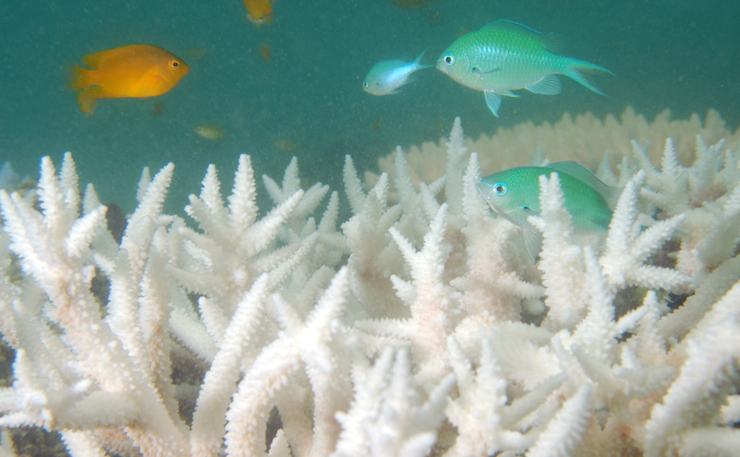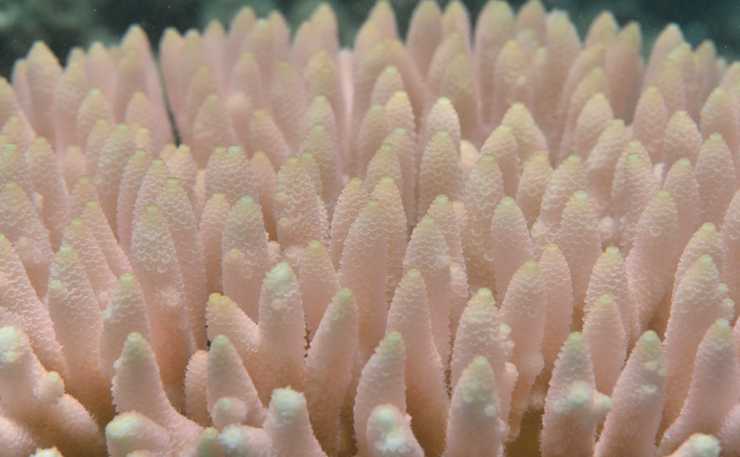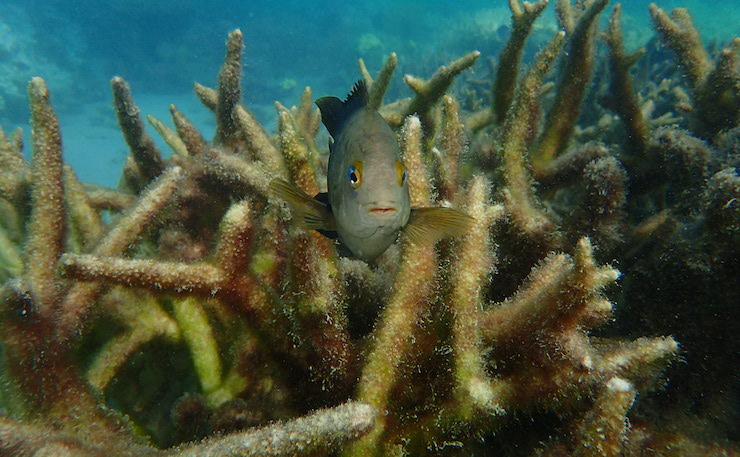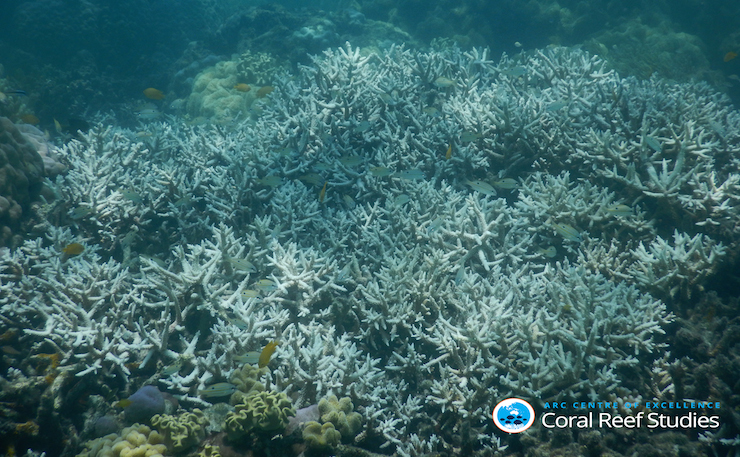The Great Barrier Reef has been consigned to terminal decline according to one leading researcher, James Cook University’s Jon Brodie, who has dismissed Labor’s pledge for $377 million in new funding as inadequate.
Labor had hailed its policy as “a comprehensive and collaborative approach to address all the pressures being faced by this great natural wonder,” and sought to make conservation of the Reef a key point of difference at the upcoming election.
The Opposition’s plan is “better than the Coalition’s” but Jon Brodie says it’s a far cry from what’s needed, and effectively condemns the Reef to “continued quick degradation”. “In the end, $500 million over 5 years is not going to cut it,” he said.
Brodie had called for a $10 billion funding commitment over the next decade, to improve water quality before climate change impacts become worse than they already are.
“Remember spending all of this money would have only slowed it a bit, maybe quite a bit, but what we’ve done now by not spending much at all is we’ll just see continued quick degradation,” Brodie said.

Professor John Pandolfi, a University of Queensland academic with the ARC Centre of Excellence for Coral Reef Studies, agreed that Labor’s commitment is “not enough for what needs to be done”.
“I think Labor’s commitment is the right step forward, but I agree it’s not enough,” Prof Pandolfi said. “It’s just band aids on a huge problem.”
Labor’s plan involves a $50 million boost for scientific research, as well as a further $100 million to be “bring all parties to the table” in order to coordinate programs and reduce duplication. Another $300 million would be used to bolster on-the-ground programs.
Brodie said he “can’t imagine” how Labor would spend $100 million reducing duplication and coordinating programs. “In fact, $100,000 might do that pretty well.”
The criticism comes at a bad time for the reef. Over recent months, 93 per cent of the ecosystem has suffered from coral bleaching. According to new research, that has resulted in 35 per cent of corals on the northern and central Great Barrier Reef dying.
A team from the ARC Centre of Excellence for Coral Reef Studies at James Cook University surveyed 84 reefs between Townsville and Papua New Guinea, and found that those to the north of Cairns were worst hit.

“This year is the third time in 18 years that the Great Barrier Reef has experienced mass bleaching due to global warming, and the current event is much more extreme than we’ve measured before,” said the Centre’s Director, Professor Terry Hughes.
Already, the Great Barrier Reef has lost half of its hard coral cover in the past thirty years.
Bleaching occurs when water becomes too hot for the corals, and recent research suggests that the latest mass bleaching event was made 175 times more likely by climate change. Commenting on the recent bleaching event, Prof. Pandolfi said “it’s not so much a surprise that it happened, but more that it happened so soon and so intensely”.
Last week the Federal Government was embarrassed by revelations in Guardian Australia that the Department of Environment requested a UNESCO report be scrubbed of any reference to how climate change threatens the Great Barrier Reef.
“I think that shows the attitude to climate change,” Brodie said. “It was an own goal, and it’s world wide news now.” He said that with Labor promising a total of $500 million for the Reef at this election campaign, and no indications yet the Coalition will substantially exceed that commitment, the future of the Reef is all but sealed.

One possible theory of how the natural wonder will change is that it will enter a stable state as an “algae reef”, rather than a coral one. “I don’t know if we can ever expect our ecosystems to go back to where they were 50 years ago – terrestrial, marine, they’re beyond that,” Brodie said.
Prof. Pandolfi said it’s important to alleviate stress on the Great Barrier Reef, like that caused by water quality, to “restore the health and the condition of these reefs” and build resilience in the face of escalating climate impacts.
“So if we have to go in and do a surgery, and we’re only entering the operating table with a bandaid, then we’re not going to be all that effective,” he said. “So it’s a question of scale and what needs to be done. Basically the more that we do, the better off we’re going to be.”
He said the grim future of the Great Barrier Reef was about more than just corals. “It’s the fact that this is an ecosystem that if it goes down due to climate change then other things wont’ be far behind,” he said.
“I think to try to get at the water quality issues, the relationship between the land and the sea, the emissions issues, to try to lower sea surface temperatures: These are all things that have to be done, and have to be done now.”
Donate To New Matilda
New Matilda is a small, independent media outlet. We survive through reader contributions, and never losing a lawsuit. If you got something from this article, giving something back helps us to continue speaking truth to power. Every little bit counts.





